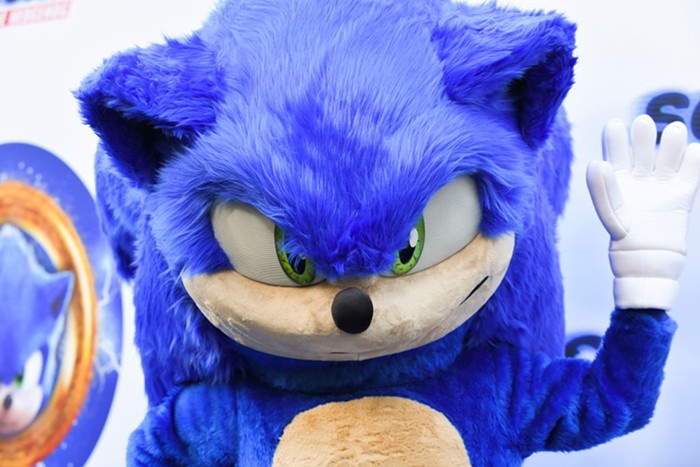FOR ALL THE SAP AND SCHLOCK the man has forced upon his increasingly estranged public over the last 150 years or so, Woody Allen remains a surprisingly unsentimental filmmaker. A singular septuagenarian industry, Allen's machine-like approach to filmmaking has long been one of his greatest virtues, but it's also his biggest liability—his relentlessly annual offering of okay-to-shruggable seriocomedy has all but buried the glittering memory of past triumphs for his casual fans, and reduced his audience to none but the utterly devout. And yet he persists, without a precious bone in his body, subtly tweaking a brand that reached its peak some 30 years ago. Even for a lifelong Allen apologist, such as myself, the task of reviewing "the new Woody Allen movie" always seems like an exercise in futility, tantamount to offering critical commentary on the relative merits of a Doritos rebranding campaign: Sure, the veneer's a little different each time, but ultimately the product's steadfast homogeny is actually sort of the point.
Bad metaphors aside, you've probably noticed—perhaps to no small irritation—that I have said next to nothing about the new "new Woody Allen movie" in question, forgettably titled You Will Meet a Tall Dark Stranger. But ask yourself: What exactly is there to say? Discontented but otherwise comfortable white people (Naomi Watts, Anthony Hopkins, Josh Brolin, and white-beloved non-white Antonio Banderas) make hasty, entitled decisions about marital fidelity, and then holdonwhuuut?!?! Whimsical synchronicity?!?! I mean, we've all heard this one, haven't we? Honestly, the only thing that sets Tall Dark Stranger significantly apart from Allen's last 15-20 films is the incredibly distracting choice of a narrator (Zak Orth), a misstep that gives the whole affair the feeling of a two-hour green band trailer. Otherwise, this is a perfectly serviceable addition to the brand: no less, and certainly no more.



















